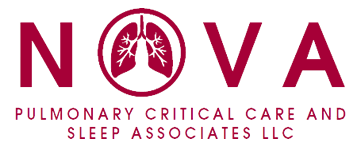Who are Respiratory Specialists?
Respiratory specialists, also known as pulmonologists or respiratory physicians, are medical doctors who specialize in the diagnosis and treatment of diseases and conditions affecting the respiratory system. The respiratory system includes the lungs, airways, and other structures involved in breathing.
What do Respiratory Specialists Do?
Here are some key aspects of what respiratory specialists do:
- Diagnosis and Treatment of Respiratory Conditions:
- Asthma: Managing and treating asthma, a chronic condition that affects the airways and can cause symptoms like wheezing, coughing, and shortness of breath.
- Chronic Obstructive Pulmonary Disease (COPD): Diagnosing and managing conditions like chronic bronchitis and emphysema that obstruct airflow in the lungs.
- Interstitial Lung Disease: Evaluating and treating diseases that cause inflammation and scarring of the lung tissue.
- Infectious Respiratory Diseases: Diagnosing and treating respiratory infections, including pneumonia, bronchitis, and tuberculosis.
- Sleep Medicine:
- Evaluating and treating sleep-disordered breathing conditions such as sleep apnea.
- Conducting sleep studies and interpreting polysomnography results.
- Lung Cancer Diagnosis and Management:
- Investigating and managing lung nodules, masses, or tumors.
- Coordinating with oncologists for the treatment of lung cancer.
- Pulmonary Function Testing:
- Conducting and interpreting various pulmonary function tests, including spirometry and diffusion capacity tests, to assess lung function.
- Bronchoscopy:
- Performing bronchoscopy procedures to visually examine the airways, obtain biopsy samples, and remove foreign objects.
- Critical Care Medicine:
- Managing respiratory failure and other critical conditions in the intensive care unit (ICU).
- Utilizing mechanical ventilation and other life support measures.
- Allergy and Immunology:
- Assessing and treating respiratory allergies and related conditions.
- Education and Patient Counseling:
- Providing education to patients about their respiratory conditions, treatment options, and self-management strategies.
- Offering smoking cessation counseling for individuals with tobacco-related respiratory diseases.
- Research and Clinical Trials:
- Conducting research to advance the understanding of respiratory diseases and contribute to the development of new treatments.
- Participating in clinical trials to evaluate the efficacy and safety of new therapies.
- Collaboration with Other Specialists:
- Collaborating with other healthcare professionals, such as primary care physicians, cardiologists, and surgeons, to provide comprehensive care for patients with complex medical conditions.
Respiratory specialists play a crucial role in the multidisciplinary approach to respiratory health, working to diagnose, manage, and improve the quality of life for individuals with various respiratory conditions.
When Should You Consult with a Respiratory Specialist
Consulting a respiratory specialist, also known as a pulmonologist, may be warranted in various situations, especially if you are experiencing respiratory symptoms or have specific risk factors. Here are some scenarios in which it may be advisable to see a respiratory specialist:
- Chronic Respiratory Symptoms: If you are experiencing persistent or recurrent respiratory symptoms such as:
- Shortness of breath
- Chronic cough
- Wheezing
- Chest pain related to breathing
- Frequent respiratory infections
- Asthma or COPD Diagnosis or Management: If you have been diagnosed with asthma or chronic obstructive pulmonary disease (COPD) and need specialized care for effective management of your condition.
- Unexplained Lung Nodules or Masses: If lung nodules or masses are detected on imaging studies (chest X-ray or CT scan), a respiratory specialist can assess and determine the appropriate course of action.
- lung cancer Concerns: If you have symptoms or risk factors for lung cancer, such as a history of smoking, exposure to environmental toxins, or a family history of lung cancer.
- Sleep-Related Breathing Disorders: If you are experiencing symptoms of sleep-disordered breathing, such as loud snoring, pauses in breathing during sleep, or excessive daytime sleepiness.
- Respiratory Allergies: If you have persistent or severe respiratory allergy symptoms, such as allergic rhinitis or asthma, that require specialized management.
- Occupational Lung Diseases: If you have been exposed to occupational hazards that may lead to lung diseases, such as asbestos, coal dust, or other toxic substances.
- Pulmonary Function Testing: If you need comprehensive pulmonary function testing, such as spirometry or diffusion capacity testing, to assess lung function.
- Recurrent Pneumonia: If you have a history of recurrent pneumonia or other respiratory infections, especially if there is concern about an underlying lung condition.
- Preoperative Assessment: If you are scheduled for surgery and have pre-existing respiratory conditions or risk factors that may affect your ability to undergo anesthesia and surgery.
- Smoking Cessation Support: If you are a smoker and want assistance with smoking cessation or if you have concerns about the impact of smoking on your respiratory health.
It’s important to note that a referral to a respiratory specialist is often made by a primary care physician based on the specific symptoms or conditions observed. If you are experiencing respiratory symptoms or have concerns about your lung health, it’s advisable to schedule an appointment with your primary care doctor, who can then determine if a referral to a respiratory specialist is necessary. Early intervention and proper diagnosis can lead to more effective management of respiratory conditions.
Meet the team at NOVA Pulmonary Critical Care and Sleep Associates

Dr. Aditya N Dubey, M.D, F.C.C.P. – Founder
Specialty:
Pulmonary, Critical Care and Sleep Medicine
Board Certified by American Board of Internal Medicine in the Subspecialities of Pulmonary Medicine, Critical Care Medicine and Sleep Medicine. Learn more about Dr. Dubey

Dr. Petra Thomas, M.D.
Specialty:
Pulmonary Medicine
Board Certified by American Board of Internal Medicine in the Subspecialities of Pulmonary Medicine. Learn more about Dr. Thomas

Dr. Arman Murabia, M.D.
Specialty:
Pulmonary, Critical Care and Sleep Medicine
Board Certified by American Board of Internal Medicine in the Subspecialities of Pulmonary Medicine, Critical Care Medicine and Sleep Medicine. Learn more about Dr. Murabia

Rebekah Lee, AGNP-C
Nurse Practitioner. Learn more about Rebekah Lee

Christine Amorosi, AGNP-C
Nurse Practitioner. Learn more about Christine Amorosie
Office Locations
Conveniently located near you in Loudoun and Fairfax VA
NOVA Pulmonary – Dulles
24430 Stone Springs Boulevard
Suite 200
Dulles, VA 20166
NOVA Pulmonary – Lansdowne
19415 Deerfield Avenue
Suite 301
Landsdowne, VA 20176
